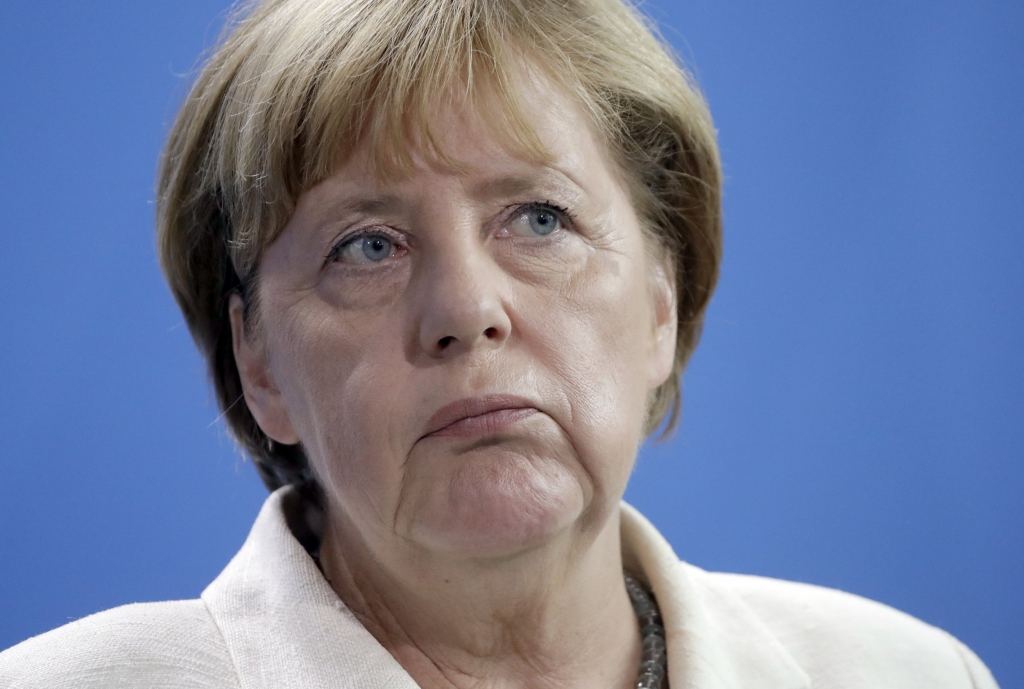-
Tips for becoming a good boxer - November 6, 2020
-
7 expert tips for making your hens night a memorable one - November 6, 2020
-
5 reasons to host your Christmas party on a cruise boat - November 6, 2020
-
What to do when you’re charged with a crime - November 6, 2020
-
Should you get one or multiple dogs? Here’s all you need to know - November 3, 2020
-
A Guide: How to Build Your Very Own Magic Mirror - February 14, 2019
-
Our Top Inspirational Baseball Stars - November 24, 2018
-
Five Tech Tools That Will Help You Turn Your Blog into a Business - November 24, 2018
-
How to Indulge on Vacation without Expanding Your Waist - November 9, 2018
-
5 Strategies for Businesses to Appeal to Today’s Increasingly Mobile-Crazed Customers - November 9, 2018
German anti-immigrant party beats Merkel’s CDU
The Christian Democrats, by contrast, were to receive 19% – the party’s worst-ever result in Mecklenburg-West Pomerania, a sparsely populated, economically challenged state in the former East Germany that is home to Merkel. “This put her in her place”.
Advertisement
The German Chancellor’s refugee policies played a prominent role during election campaigns – as Germany registered over 1 million people as asylum-seekers a year ago.
“The fact is that the government in this state was a mirror image of the government federally, of the Social Democrats and Cristian Democrats in coalition, and both parties until this point have maintained the fact that the refugee policy is the right one”.
Although she won praise at first, the optimism has given way to fears over how Europe´s biggest economy will manage to integrate the million people who arrived previous year alone. If the national election were held next week, the AfD would win 12 percent of the vote, making it the third-largest party in Germany, according to a poll conducted by the Emnid institute for the Bild newspaper and published on Sunday.
Addressing supporters, local AfD leader Leif-Erik Holm said: “Perhaps this is the beginning of the end of Angela Merkel’s chancellorship today”.
New arrivals in Germany have slowed drastically this year and Mecklenburg is home to relative few foreigners.
“This result is bitter for everybody in our party”, CDU General Secretary Peter Tauber told reporters in Berlin.
He said that the state government’s positive record had taken a back seat for many voters, “because among a recognizable part, there was an explicit wish to voice displeasure and protest, and we saw that particularly strongly in the discussion about refugees”.
But “sometimes you have endure such controversies”, she said.
AfD veteran strategist and deputy chairman Alexander Gauland said Sunday’s result had great symbolic power ahead of next year’s federal election and would add impetus to Berlin city-state’s election on September 18.
Sunday’s election was for the state legislature in a single state, with a population of about 1.6 million.
Mecklenburg-Western Pormerania is Germany’s poorest state and elections are usually decided on economic issues.
Interior Minister Thomas de Maiziere, a fellow Christian Democrat, rejected as “preposterous” criticism from some in the CDU’s Christian Social Union (CSU) sister party that Merkel’s refugee policy was responsible for the rise of the AfD party. The left-leaning Greens were hovering around the 5 percent mark. It is now the only place in Germany where the far-right National Democratic Party is represented in the state legislature, though polls suggest it is likely to lose its seats with some supporters switching to AfD.
AfD is now represented in nine of Germany’s 16 state legislatures and hopes to enter the national Parliament next year.
Advertisement
However, the AfD failed in its aim of becoming the strongest party – and didn’t match the 24.3 per cent support it won in the eastern state of Saxony-Anhalt in March.





























